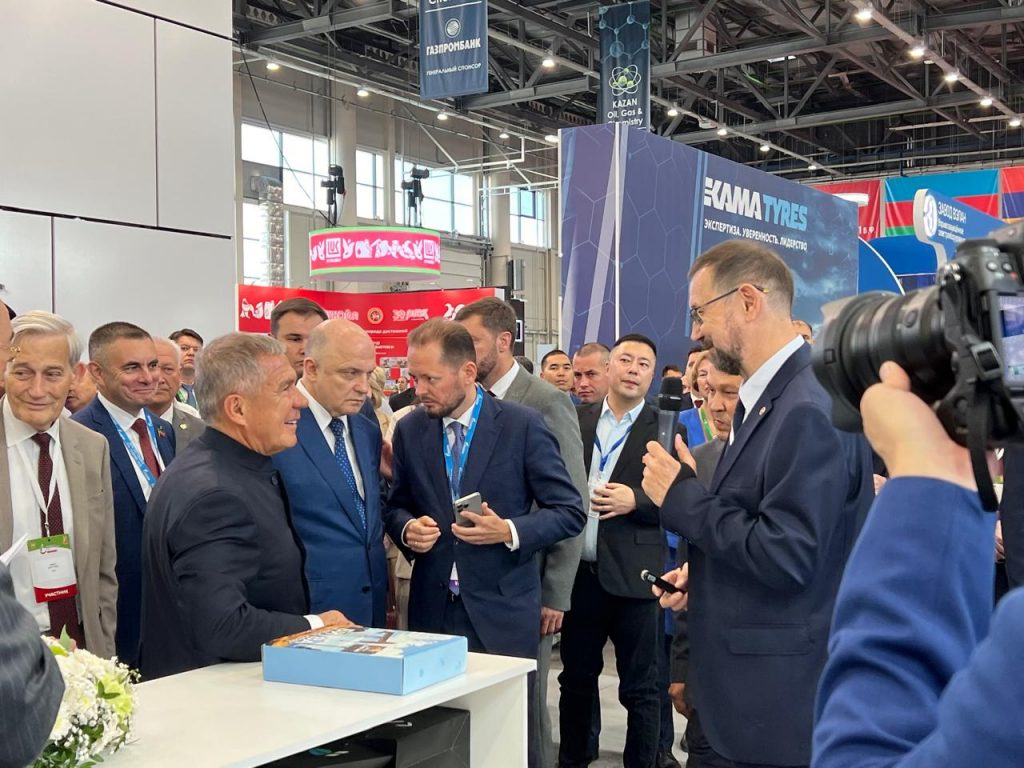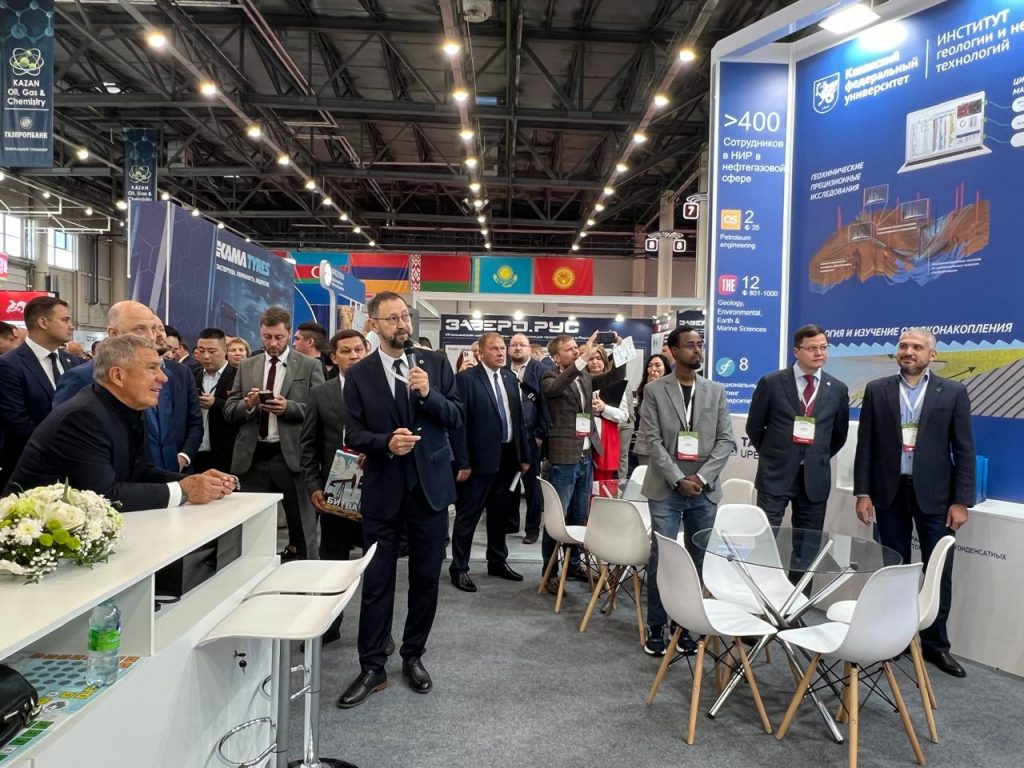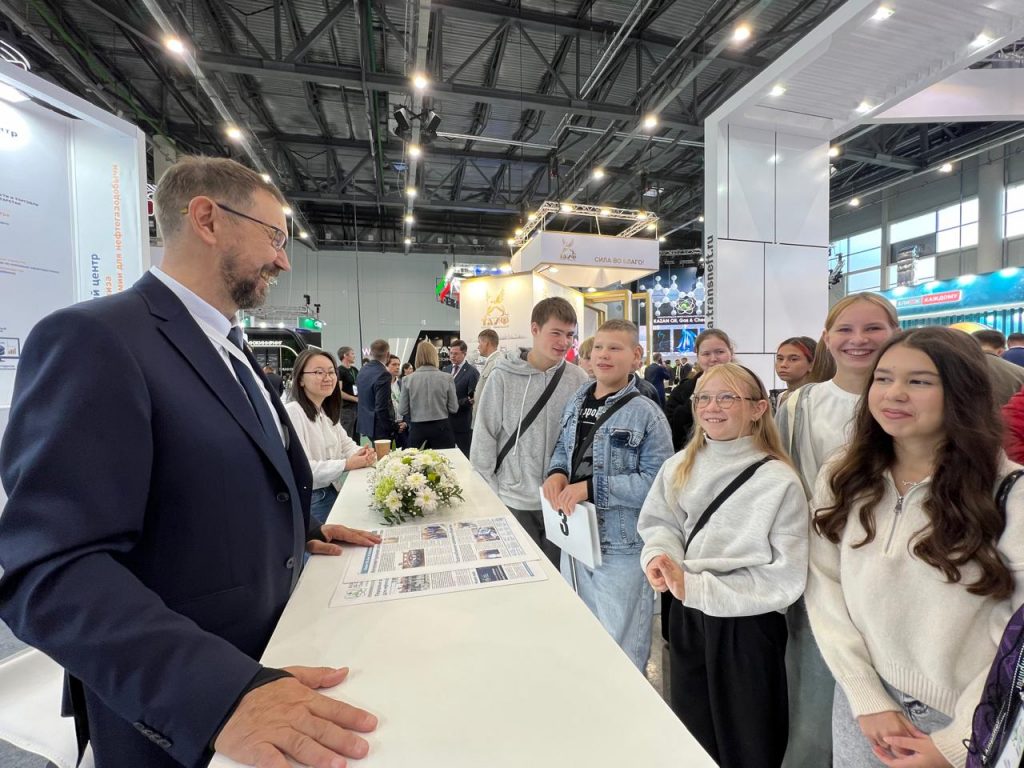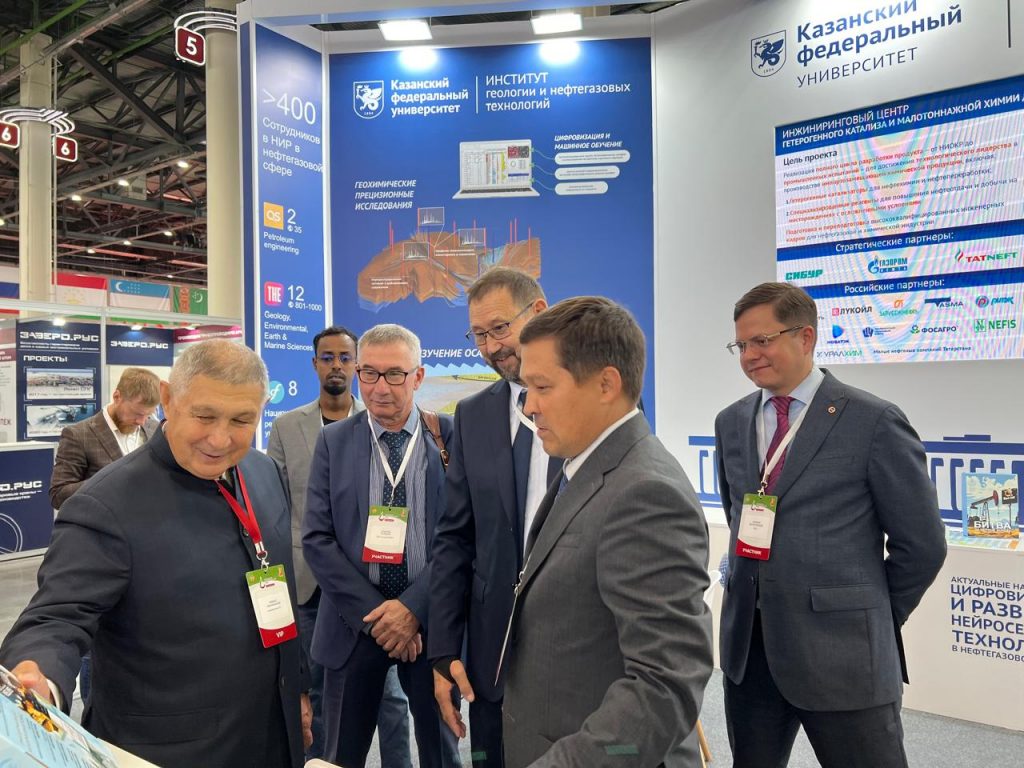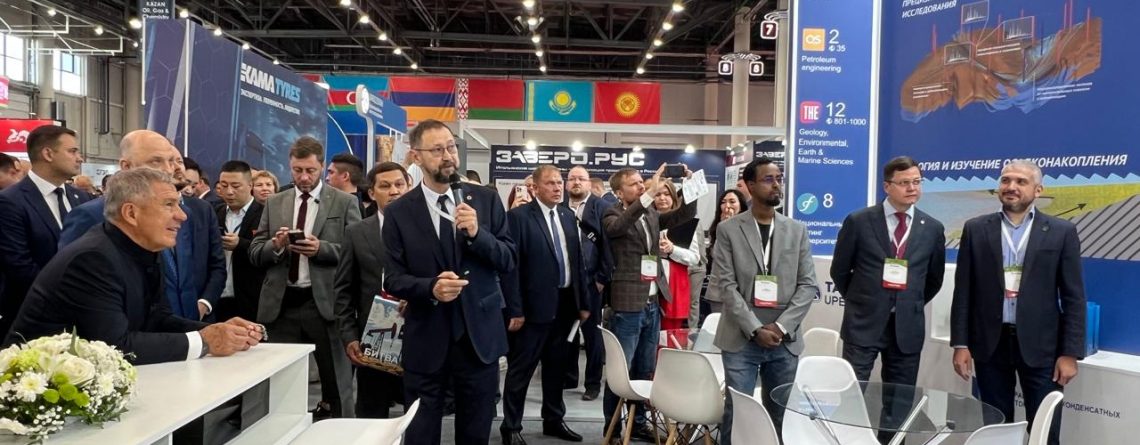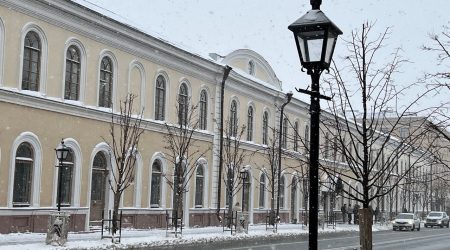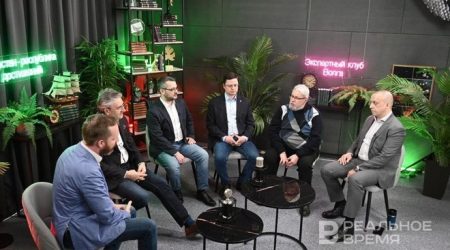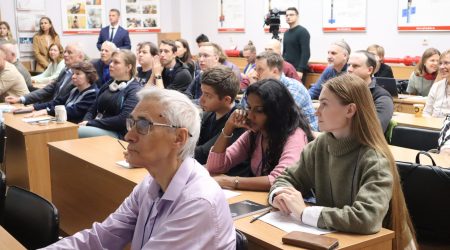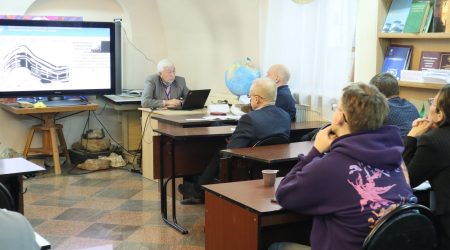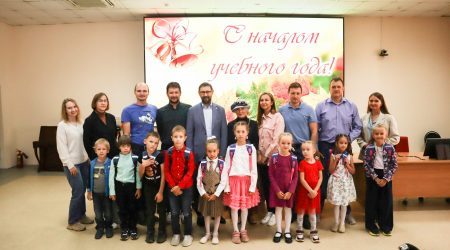KFU’s work represented at Tatarstan Petrochemical Forum 2025
Kazan Federal University presented projects and innovations at the Tatarstan Petrochemical Forum, which is held on 26 – 28 August with the participation of the Rais (Head) of the Republic of Tatarstan Rustam Minnikhanov at the Kazan Expo International Exhibition Center.
One of the largest events in the Russian oil and gas industry brings together representatives of companies, government agencies and the scientific community not only from Russia, but also from other countries – the Kingdom of Bahrain, Serbia, the Republic of Qatar, the United Arab Emirates, the Republic of Egypt, the Republic of Mauritania, the Republic of Belarus, the Republic of Kazakhstan, and Turkmenistan.
The main event of the forum was the plenary session of the international scientific and practical conference Technological leadership and sustainable development: innovative approaches and solutions for the future of the oil and gas industry. Speaking at it, R. Minnikhanov emphasized that the petrochemical complex remains the basis of the Tatarstan economy. The event’s guests of honor were Deputy Minister of Industry and Trade of the Russian Federation Mikhail Ivanov, Head of the Republic of Sakha (Yakutia), Chairman of the Commission on Energy of the State Council of Russia Aisen Nikolaev, Chairman of the Council of the Union of Oil and Gas Industrialists of Russia Yury Shafranik, and others.
The report Modern Technologies for Improving the Efficiency of Developing Giant Oil Fields at a Late Stage was presented at the plenary session by Vice-Rector for Earth Sciences Danis Nurgaliev.
“KFU has developed the ResNeuro software package for localizing residual oil reserves at fields at a late stage of development. It is based on an innovative method for identifying areas of deposits with the lowest degree of hydrocarbon bio-degradation. Residual oil reserves are most likely to be found in these zones,” he said.
According to the Vice-Rector, the software created using neural network technologies has already been tested at fields in Tatarstan.
The Kazan Oil, Gas & Chemistry exhibition is held within the framework of the forum, demonstrating the latest technologies, equipment and various inventions to improve the efficiency of oil and gas production and processing.
Rustam Minnikhanov visited Kazan University’s stand. Danis Nurgaliev introduced him to the university’s projects and developments. In particular, he mentioned discovery of new hydrocarbon deposits, digital tools for well logging developed jointly with small companies, and catalysts created by university scientists to enhance oil recovery.
“Kazan University received a subsidy for the creation and development of an engineering center for heterogeneous catalysis and low-tonnage chemistry, which will operate on the basis of KFU’s Small Tonnage Chemical Technologies Park. It is also presented in the exhibition,” said Mikhail Varfolomeev, Director of the Technology Park.
At the scientific and practical conference Raw Materials and Energy Support for the Growth of the Chemical Complex of the Russian Federation, Dr Varfolomeev presented his report The Role of Engineering Centers in the Development and Scaling of Chemical Products: an Example of Low-Tonnage Chemistry for the Oil and Gas and Related Industries.
The main goal of the conference, which was attended by leading scientists and experts in the chemical and oil and gas industries, was to discuss current issues related to the development of the Strategy for the Development of the Chemical Industry of the Russian Federation until 2042.
Kazan Federal University organized the round table Solving the Problems of the Oil and Gas Industry within the Framework of a World-Class Scientific Center.
Its moderator and one of the speakers was Associate Professor Igor Ognev. He told the participants about the work on the study of radioactivity of the Volga region crystalline basement rocks. The report was called Radiogenic Heat of the Volga Region. “The concentration of radioactive elements in the crystalline basement is one of the most important factors determining the heat flow in oil and gas sedimentary basins,” the geologist said. “Kazan University has a unique collection of rocks belonging to the so-called crystalline basement of the Volga region. They were mined from significant (more than 1.5 kilometers) depths and are two to three billion years old. It is from such rocks that most of the earth’s crust in the east of the Russian Plate consists. Determining the concentration of radioactive isotopes of uranium, thorium and potassium in the crystalline basement allows us to shed light on the features of the geothermal structure of the Volga-Ural oil and gas basin.”
Alexey Malakhov, Research Associate of the Laboratory of Enhanced Oil Recovery, reported on the development of surfactants for increasing oil recovery in a wide range of reservoir conditions.
The forum is a good platform for working with industrial partners, commented Ildus Chukmarov, Deputy Director for Continuing Education and Industrial Partnerships of the Institute of Geology and Petroleum Technologies.
“Today, a cooperation agreement was signed between KFU and EFT GROUP, a national leader in geodetic equipment and software. The document was signed by Vice-Rector Nurgaliev and Deputy General Director of the company Alexey Raver,” he said. “On September 8, we will begin implementing our new continuing education program, Ground-penetrating radar survey. In addition, on August 29, a meeting will be held at KFU, where a cooperation agreement with the Russian Gas Society will be discussed.”
